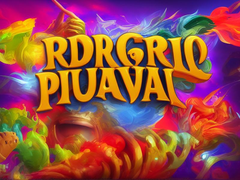.png)
Macau, an autonomous region on the southern coast of China, is renowned for its vibrant economy, rich cultural heritage, and dynamic tourism sector. This article explores the key aspects of Macau’s development, its economic performance, and its status as a major global tourist destination.
Economic Overview
Macau’s economy is primarily driven by tourism and gaming industries. The region has transformed into one of the world’s largest gambling centers, with numerous casinos attracting millions of visitors annually. The influx of tourists has led to significant growth in retail and hospitality sectors, making Macau a bustling economic hub. Government policies and infrastructural developments have further bolstered economic growth, with a focus on diversifying beyond gaming to include cultural and leisure activities.
Cultural and Historical Significance
Macau boasts a unique blend of Portuguese and Chinese cultures, reflected in its architecture, cuisine, and festivals. The historic center of Macau, a UNESCO World Heritage Site, features colonial-era buildings and ancient temples, offering a glimpse into its colonial past. Festivals like the Macau International Music Festival and the Macau Grand Prix highlight the region’s vibrant cultural scene, attracting international attention and contributing to its cultural richness.
Tourism and Attractions
Tourism is a cornerstone of Macau’s economy, with attractions ranging from luxurious casinos to historical landmarks. Key sites include the Ruins of St. Paul’s, Senado Square, and the Macau Tower. The region’s casinos, such as The Venetian and City of Dreams, offer world-class entertainment and accommodation. Additionally, Macau’s diverse culinary scene, with influences from both Portuguese and Chinese cuisines, provides visitors with a unique gastronomic experience.
In summary, Macau stands out as a major economic and cultural center, blending its historical heritage with modern advancements. Its thriving tourism and gaming industries continue to drive economic growth, while its rich cultural tapestry offers a unique and enriching experience for visitors.









